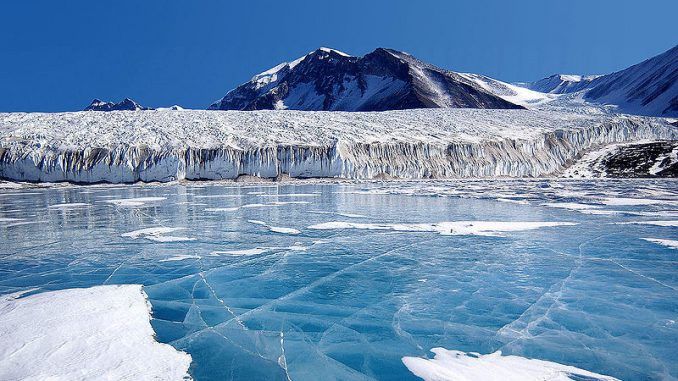
NASA say that Antarctica has been adding more ice than it has been losing, which challenges conventional research by the UN that says the Earth is losing ice overall.
The paper published in the Journal of Glaciology show that there has been a net gain of 113 billion tons of ice per year from 1992 to 2001 in the Antarctic ice sheet.
End of global warming?

BYPASS THE CENSORS
Sign up to get unfiltered news delivered straight to your inbox.
You can unsubscribe any time. By subscribing you agree to our Terms of Use
Climate change scientists insist that these findings don’t mean it is the end of global warming. They claim that the study may not be reliable and that “better tools are needed”, contradicting the findings of NASA.
Csmonitor.com reports:
It could take only a few decades for the ice melt in Antarctica to outweigh the ice gains, the paper’s authors say.
“I don’t think there will be enough snowfall increase to offset these losses,” Jay Zwally, NASA glaciologist and lead author of the study, said in a press release.
For now, the study authors say, these findings challenge current explanations for sea level rise, much of which is attributed to melting ice sheets in Greenland and Antarctica.
“The good news is that Antarctica is not currently contributing to sea level rise, but is taking 0.23 millimeters per year away,” said Dr. Zwally.
“But this is also bad news,” he added. “If the 0.27 millimeters per year of sea level rise attributed to Antarctica in the IPCC report is not really coming from Antarctica, there must be some other contribution to sea level rise that is not accounted for.”
The paper calls attention to how difficult it is for scientists to measure small changes in ice height, particularly in East Antarctica, the largest part of the polar continent and the one that showed discrepancies with previous measurements.
“We’re essentially in agreement with other studies that show an increase in ice discharge,” in other parts of the continent, Zwally said.
“Our main disagreement is for East Antarctica and the interior of West Antarctica; there, we see an ice gain that exceeds the losses in the other areas,” he explained in a NASA announcement.
The scientists calculated this gain by looking at the height of the Antarctic ice sheet as measured by radar instruments on two European Space Agency satellites from 1992 to 2001, and by laser sensors on a NASA satellite from 2003 to 2008.
Other scientists have observed gains in land elevation in East Antarctica, explains NASA, but they’ve attributed this to snowfall in the region. But Zwally’s team used meteorological data dating back to 1979 to show that the snow accumulation in East Antarctica has actually been declining, showing that the increase in elevation must be the result of thicker ice.
NASA explains that this has been possible because at the end of the last Ice Age about 10,000 years ago, warming air carried more moisture across the continent, doubling the amount of snowfall that has been accumulating and compacting it into solid ice.
The agency is developing new tools – due to launch in 2018 – that will help more accurately measure long-term ice changes in Antarctica.
“ICESat-2 will measure changes in the ice sheet within the thickness of a No. 2 pencil,” said Tom Neumann, a glaciologist at NASA.


